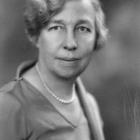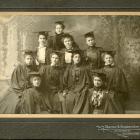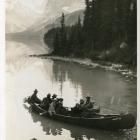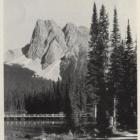Becoming MB
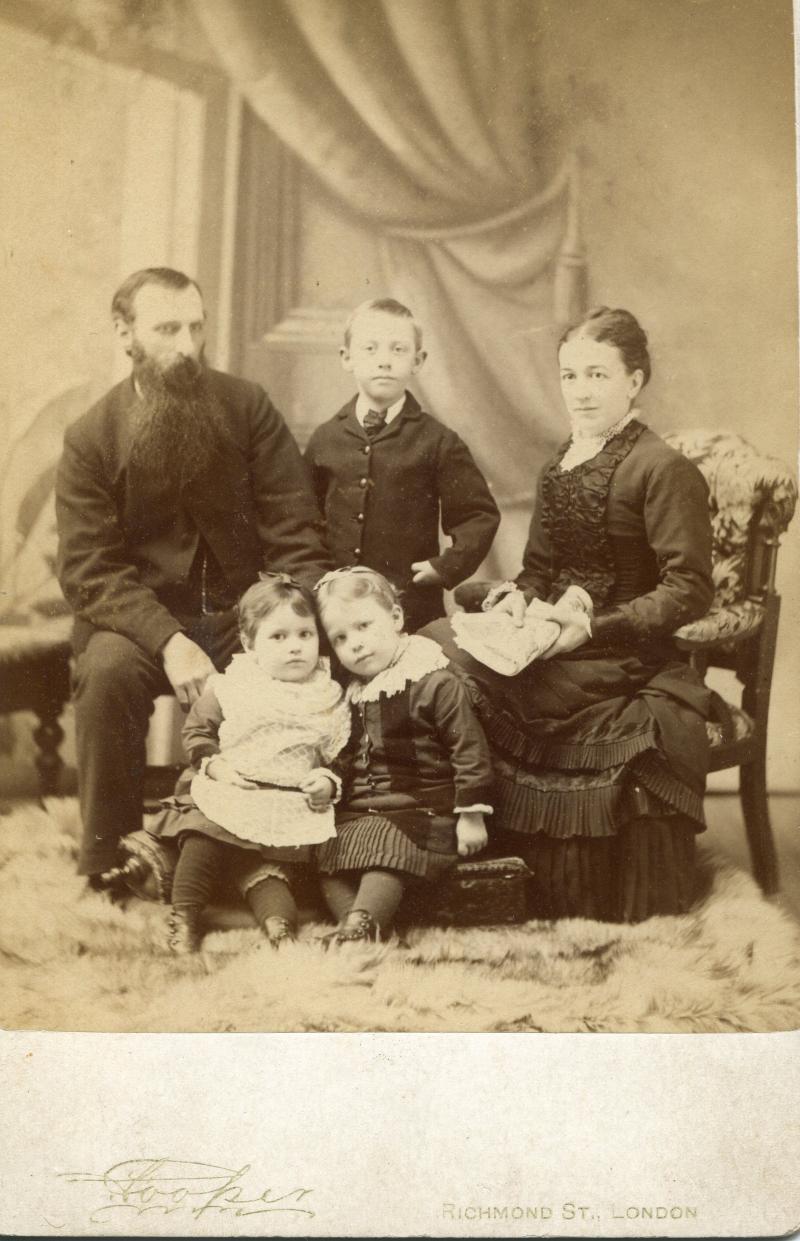
A portrait of MB Williams’s family, 1881. In the back row are father David Williams, brother Ernie (“Stalky”), and mother Sarah (Longley) Williams. In the front row are sister Eva (“Brownie”) and MB (“Fuzzy”).
A portrait of MB Williams’s family, 1881. In the back row are father David Williams, brother Ernie (“Stalky”), and mother Sarah (Longley) Williams. In the front row are sister Eva (“Brownie”) and MB (“Fuzzy”).
Photograph by Frank Cooper, London Ontario, “Family, 1881.” Photograph courtesy of Sylvia Watson, grandniece of M.B. Williams.
 This work is licensed under a Creative Commons Public Domain Mark 1.0 License.
This work is licensed under a Creative Commons Public Domain Mark 1.0 License.
Mabel Bertha Williams was born in Ottawa in 1878, and her family moved to London, Ontario when she was young. She became one of the first female graduates of the University of Western Ontario—one of the “Double Duck Egg” class of ‘00—and then went on to the University of Toronto. An uncle in the civil service helped get her a job in Ottawa with the Department of Interior, cutting out newspaper clippings related to the department’s business, at a starting salary of $300 per year. It was the sort of low-level position available to a woman of the day, even a university-educated one. “There’s not much show here for anything but the slowest advance,” she wrote her family in a 1902 letter. Nine years later, Williams was still in much the same position when her boss, James Bernard Harkin, came and asked if she was sick of politics. She replied, “I’m fed up to my teeth now.” He invited her to join him at the new Dominion Parks Branch he was setting up, the first agency in the world devoted to national parks.
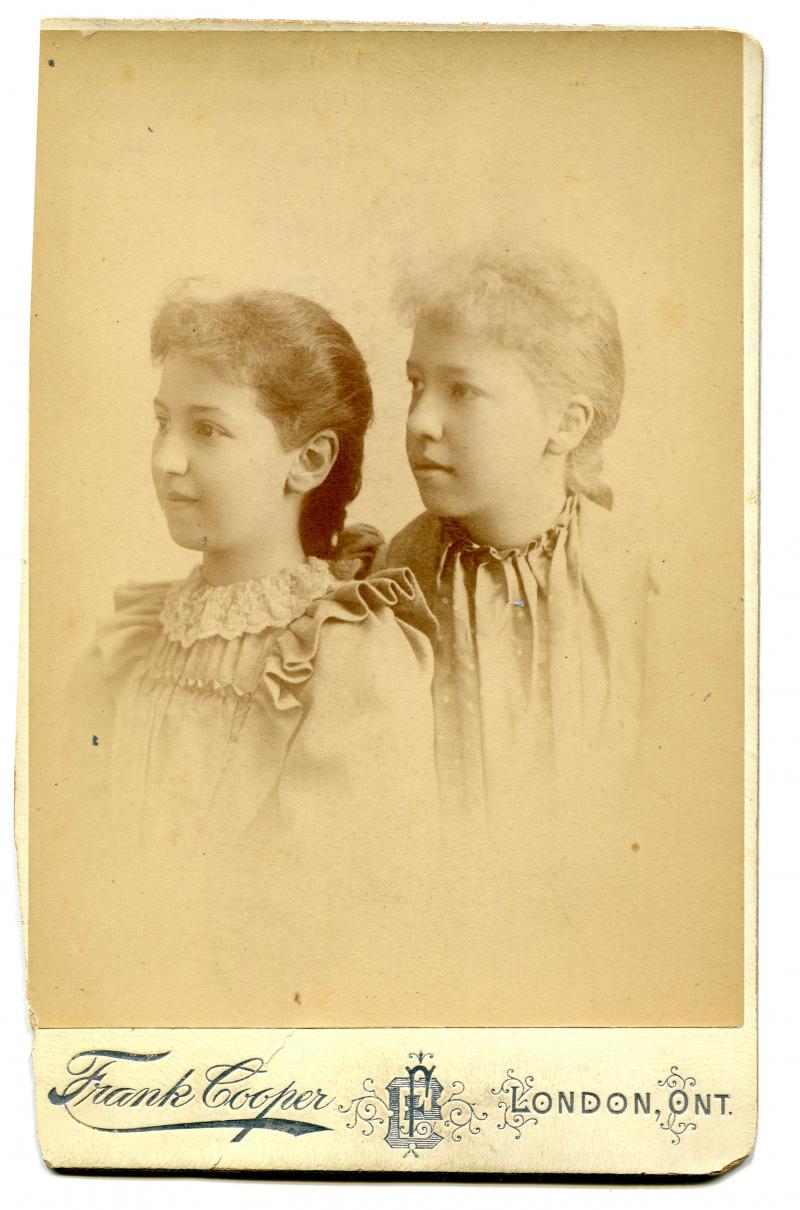
MB Williams and her sister Eva (“Brownie”) from 1892
MB Williams and her sister Eva (“Brownie”) from 1892
Photograph by Frank Cooper, London Ontario, “MB and Brownie, 1892.” Photograph courtesy of Sylvia Watson.
 This work is licensed under a Creative Commons Public Domain Mark 1.0 License.
This work is licensed under a Creative Commons Public Domain Mark 1.0 License.
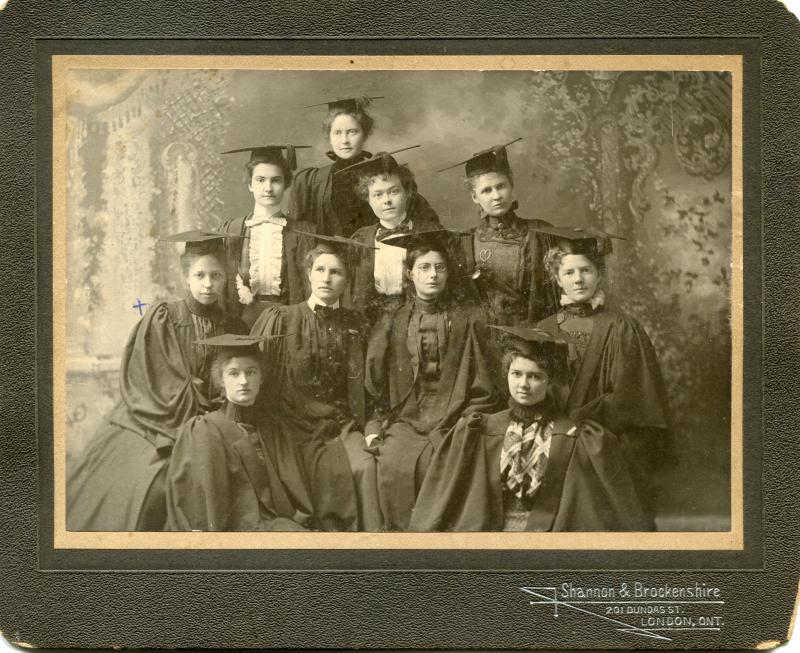
MB Williams (seated left-hand corner of the second row from the bottom—note small “x”) was a member of the first group of women to graduate from the University of Western Ontario, in 1900. This photo also includes those who graduated in 1901 and 1902, so may date from 1902.
MB Williams (seated left-hand corner of the second row from the bottom—note small “x”) was a member of the first group of women to graduate from the University of Western Ontario, in 1900. This photo also includes those who graduated in 1901 and 1902, so may date from 1902.
Photograph courtesy of Sylvia Watson, grandniece of M.B. Williams. Photographers: Shannon & Brockenshire, 201 Dundas St., London Ontario, “MB Williams and the first female graduates of the University of Western Ontario, ca. 1902.”
 This work is licensed under a Creative Commons Public Domain Mark 1.0 License.
This work is licensed under a Creative Commons Public Domain Mark 1.0 License.
The seven employees who joined the Branch that autumn faced a daunting task. They were to create and oversee a national parks system out of the handful of parks that, beginning with Banff, had been established and developed piecemeal in the Rocky Mountains over the previous twenty-five years. The staff had little inherent expertise, little in the way of models from elsewhere, access to just one percent of the departmental budget, and were 3000 kilometers away from the parks themselves.
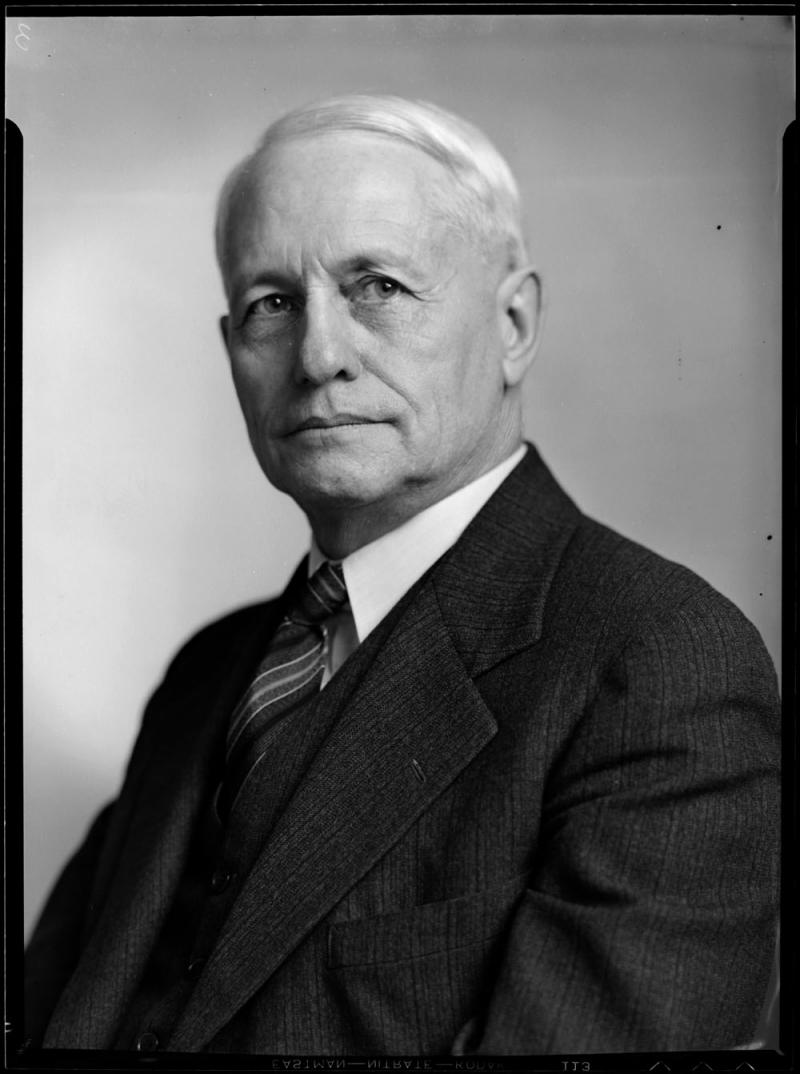
Commissioner James Bernard Harkin, MB’s boss. Photograph by Yousuf Karsh, 1937.
Commissioner James Bernard Harkin, MB’s boss. Photograph by Yousuf Karsh, 1937.
Yousuf Karsh fonds / Library and Archives Canada, Accession 1987-054
 This work is licensed under a Creative Commons Public Domain Mark 1.0 License.
This work is licensed under a Creative Commons Public Domain Mark 1.0 License.
Mabel Williams’s papers provide intimate, behind-the-scenes snapshots of the early Canadian national park system—although, ironically, some of the most relevant sources were created long after the fact. There is Commissioner Harkin’s warm, rambling letter to Williams in 1941, after they had both retired, in which he recounts how the Branch learned to justify parks to Parliament and the public not only in terms of spiritual, mental, and physical wellbeing — “You did more than anyone else to provide the proof”—but also in financial terms. (But Harkin suggested that to really learn more about the early parks, “you read a book entitled Guardians of the Wild, written by a person named Williams.” MB had published the first history of the Canadian park system five years earlier.)
There is “An Interminable Ode,” a bit of doggerel written for a party in honor of Commissioner Harkin’s 1936 retirement, which depicts the day-to-day working of the Branch. The poem not only mentions every member of the early staff (“Wise A.K. and witty F.V. and quiet M.B. too”), but reminds us in a flash of bawdy humor (“a newspaperman’s life is as good as a wife to stiffen a man’s persistence”) that these people of the past were just as real as we are.
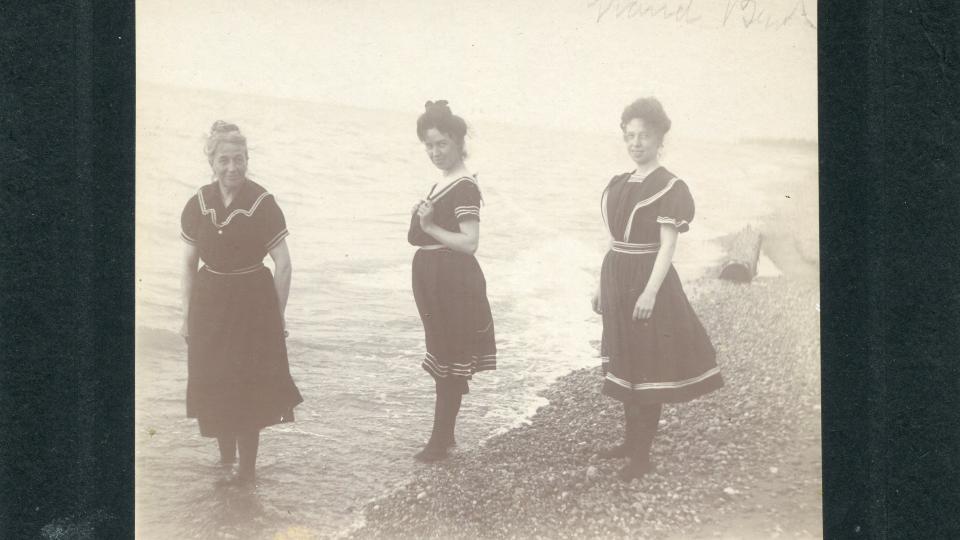
From left to right: MB’s mother Sarah, sister Eva, and MB at Grand Bend, Lake Huron, Ontario. Photographer and date unknown.
From left to right: MB’s mother Sarah, sister Eva, and MB at Grand Bend, Lake Huron, Ontario. Photographer and date unknown.
Photograph courtesy of Sylvia Watson, grandniece of MB Williams.
 This work is licensed under a Creative Commons Public Domain Mark 1.0 License.
This work is licensed under a Creative Commons Public Domain Mark 1.0 License.
And there is Williams in her own voice, in an oral interview given at age 89, almost six decades after she had joined the Branch. Here she cheerily describes the creative, collaborative environment that Harkin fostered in the office and, with neither false modesty nor embellishment, tells of her own contributions to the Branch’s early success in formulating and communicating a coherent philosophy.
It is in Williams’s proud voice and in the loyalty she showed the Parks Branch throughout her entire life that we come to see just how important the 1910s were to her. The bureau was new and unnoticed enough, the office small enough, the work important enough, and the boss progressive enough that a woman with talent could flourish. And she did: Mabel Williams began the decade as a file clerk and ended it a trusted senior staff member. Her ability to accomplish whatever task given her was about to make her the Parks Branch’s—and so, Canada’s—leading writer of promotional literature. She would adopt “MB” as her name for writing and, tellingly, for her private life as well.
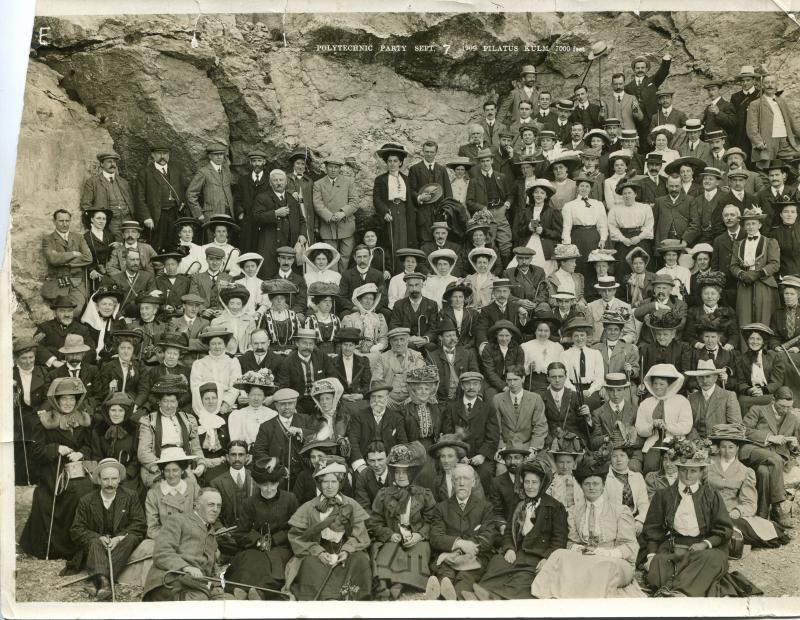
MB Williams—sixth row from the bottom, second from the left—at the Polytechnic Party, Pilatus Kulm, Switzerland, on 7 September 1909
MB Williams—sixth row from the bottom, second from the left—at the Polytechnic Party, Pilatus Kulm, Switzerland, on 7 September 1909
Photograph courtesy of Sylvia Watson, grandniece of MB Williams.
 This work is licensed under a Creative Commons Public Domain Mark 1.0 License.
This work is licensed under a Creative Commons Public Domain Mark 1.0 License.



